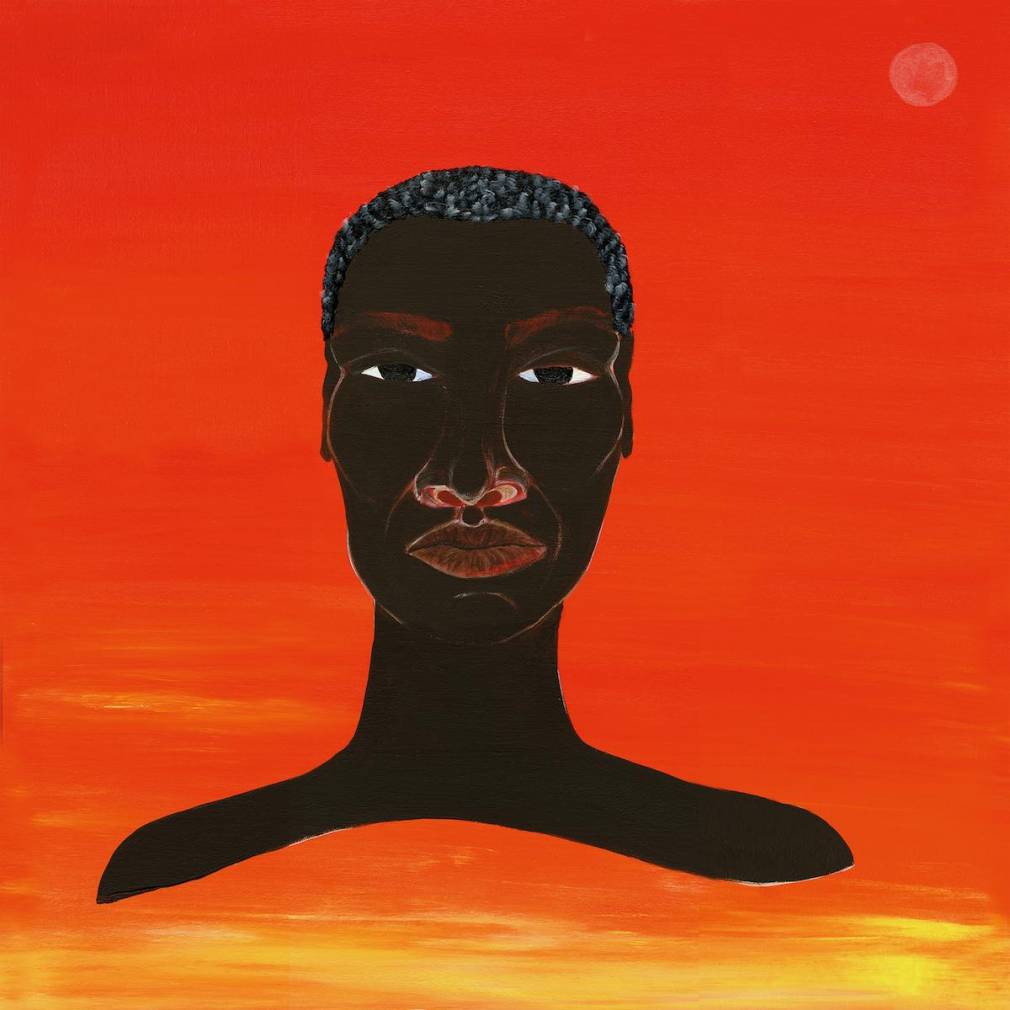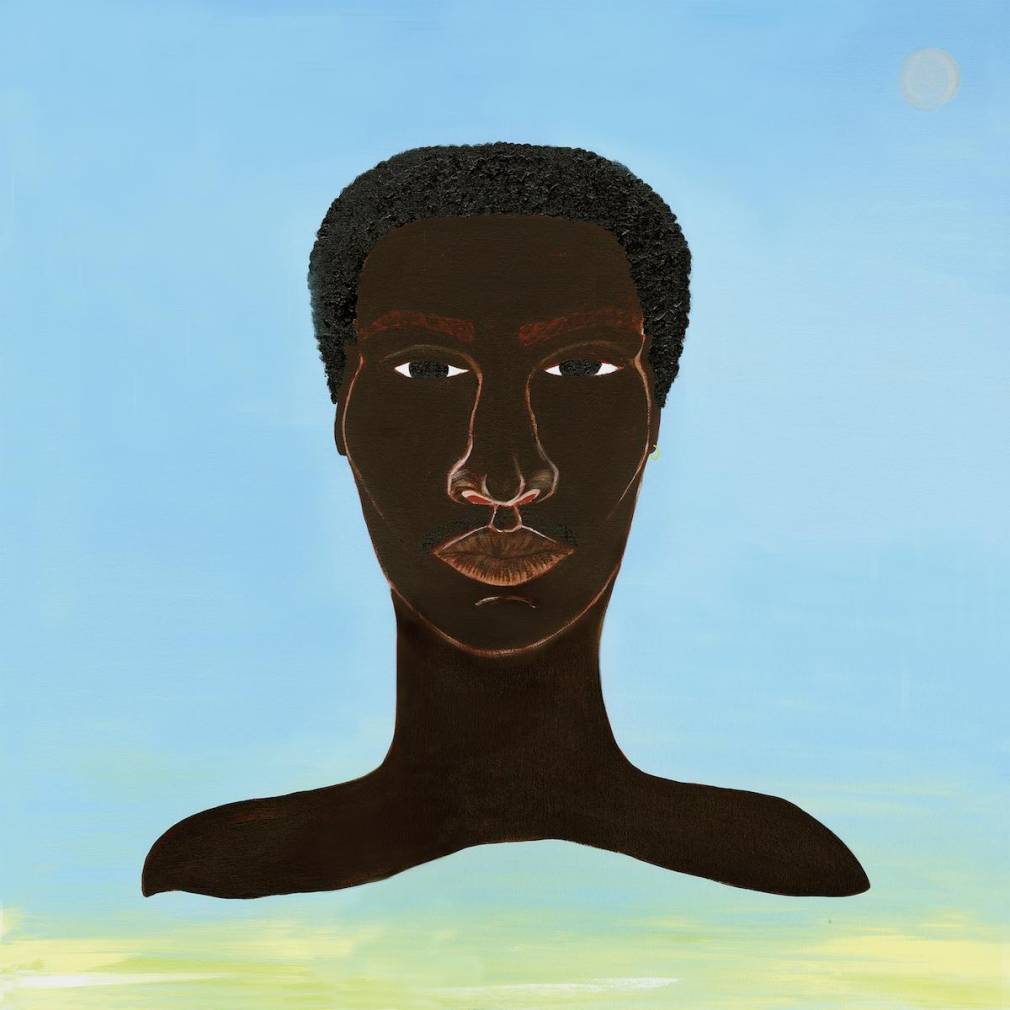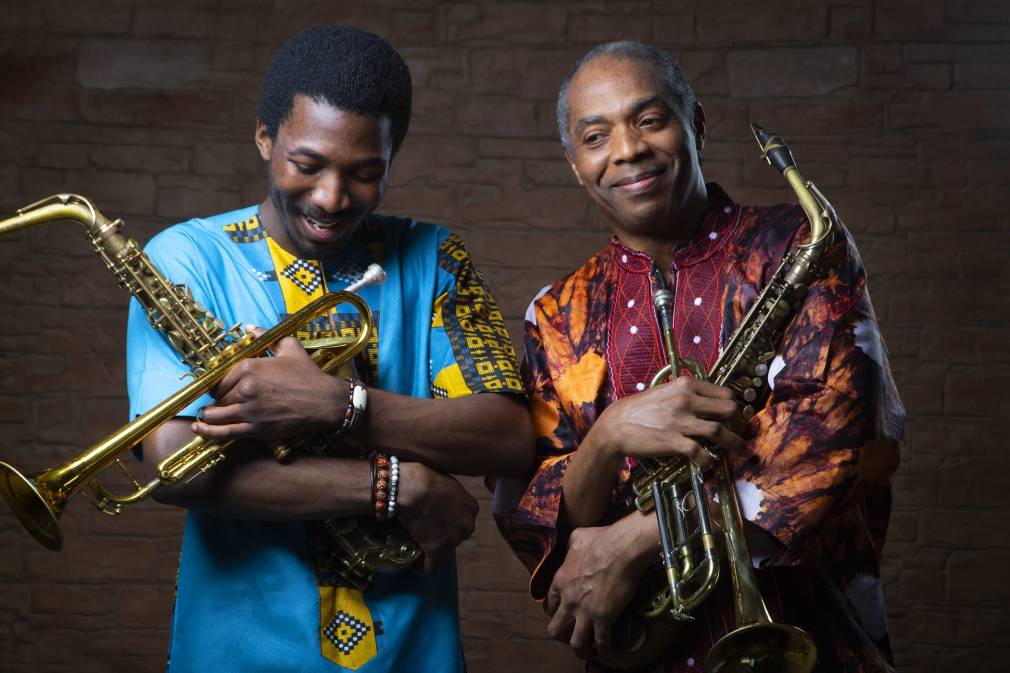Fela Anikulapo Kuti lived an extraordinary life on his own terms and at great personal cost. Music was the weapon and afrobeat his gift to the world. Schooled in the family business, Fela’s sons Femi and Seun continue to build on their father’s legacy, and now with Femi’s son Made Kuti, Fela’s musical dynasty continues.
With albums by Femi and Made to look forward to in 2021, and the political temperature running high in Nigeria, it felt like a good time for us to catch up (via Zoom of course) with father and son in Lagos.
Hi Femi, Hi Made, Good afternoon. Thank you for joining me.
Femi Kuti: You’re welcome.
Made Kuti: Pleasure.
You’re all set To drop an album Femi. Could you tell me about the journey to that album. When was it recorded? Under what circumstances? And what can we expect from the songs?
Femi Kuti: It was recorded before Covid started. So for the songs – normally when I compose we play them for a while, and most of the people who come to The Shrine know these songs because I play them for at least a year before we record them. The title will be `Stop the hate.’ I think it’s nine, or ten tracks (laughs) I can’t think right now, there’s too much happening in Nigeria.
Made Kuti: (laughing) I think on your tenth album you’re allowed to forget how many tracks you have!
Femi Kuti: No this is my eleventh album!
Made Kuti: (laughing) Oh! I see.
Femi Kuti: So the album is really about my state of mind in the last two years. It was my state of mind in the time the album was done. It’s very social and political as usual.
Can I ask you the same question now Made. This will be your first album. When did you record it? How long have the songs existed? Also I understand you are a multiinstrumentalist so is it only you playing on the album?
Made Kuti: So for the first question. When I started my first year at Trinity Laban, the conservatoire I studied at which was roughly five or six years ago, I wrote a whole album and over the course of all sorts of events, touring with my father, academia and so on I narrowed it down to eight. I wrote some before and then some after graduating. And what changed that year of writing which was 2018/19 was in my composition I had developed the liberty to really play with what I was trying to do. I wanted to experiment with sounds, with harmony with instrumental interplay. And what struck me after returning to Lagos and having written a lot of it before returning was the Lagos experience, the first hand confrontation with all the many issues Nigeria has which directly influenced the lyrics I had written. My greatest revelation upon returning was the state of mind of the Nigerian and actually people around the world. It seems there are very clear problems, very clear ways to fix them, but little to no actual results being brought about. And the question as to why that happens leads you to think in ways that need you to justify why things are the way they are, so you start to study a lot of history, you start to find out a lot of things about yourself, about your culture and about your people. History isn’t really taught in Nigerian schools and that was one of the biggest issues for me upon returning. So like my dad said about his state of mind upon writing the album, it was very much the exact same for me. Even though a lot of the album was written a while ago, on returning a lot of it changed to fit my state of mind.
And for the second question. Yes everything myself, the backing vocals, the percussion, drums, horns, rhythm section. The only thing I didn’t do was my dad’s speech on `Blood’ and my siblings voices on `Hymn’
There’s a track on the album that I found really interesting. `Higher you’ll find’ goes somewhere I really wasn’t expecting! What’s going on there?
Made Kuti: You know music really does take you on a journey. I remember someone saying if there is no development in music then there is really no point in having called it a composition. So even in repetitive music where there is groove like afrobeat, there is development. So in Fela’s there is the long build of musicality, and harmony and these huge textures. In my father’s you see the journey through rhythmic breaks. So I thought what if I do the total opposite? Something I really like doing with music is modulating without a cadence. So instead of going in a flow that would be pleasing to the ear, naturally because you see harmonically it makes sense – I like modulating to a new key. So I thought if I do that with rhythm, and instrumentation, and with harmony it would sound quite nice. So that was the idea. And I thought because it’s about looking for a higher state of consciousness it would be nice if it related.
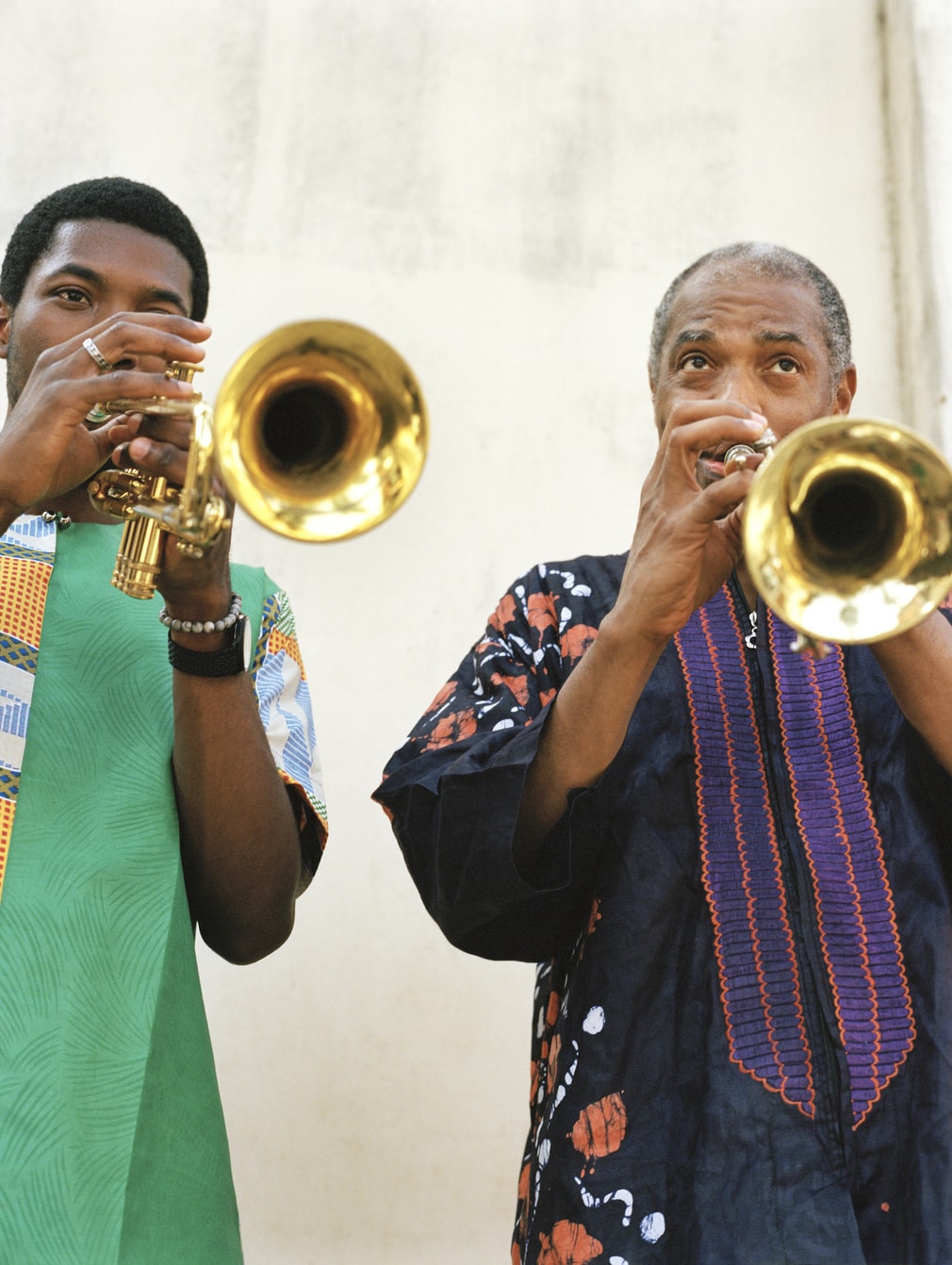
Femi, you grew up in The Shrine with Pan-African consciousness. The books around you were by or about Malcolm X, Patrice Lumumba, Kwame Nkrumah… What do you think is the current health of Pan-Africanism? And who are the leaders, the thinkers, and the musicians today, who embody that spirit of Pan-Africanism?
Femi Kuti: I wouldn’t say I know everybody. There are so many people that are very involved. In Nigeria there are a lot of young people who are fighting oppression by the police and government now. There is my brother, my son now. I think we still have the old guards, my generation, Youssou N’dour and Angélique Kidjo. I see on the internet there are a lot of good books. I don’t read a lot these days, I do a lot of practice now. What I’m trying to do is to become so perfect in my playing. I did some collaborations with a DJ called Robert Hood and it showed me new dimensions, and I thought wow! there’s still so many steps I could develop as an improviser. And then we had a collaboration with Chris Martin of Coldplay which made me pick up my sax again because I was leaning more to the trumpet.
So I’m doing more of what I call musical spiritual development. I think in this sense when one does this you have a greater understanding of your environment, which teaches you self discipline and virtues of life. So that’s where I am. But I do see a lot of people globally are involved. You have the Black Lives Matter, there are so many people fighting this cause, you have Bobi Wine in Uganda, you have Congo, South Africa. There are so many people wanting a better life and fighting for Pan-Africanism and better living standards.
Made Kuti: If I may add to that. What I have started to think, actually from a very long time and influenced from my dad of course, is that the true Pan-Africanist is the person who does practice Pan-Africanism in daily life. So your state of mind, and the daily choices you make whatever profession you do. So for instance let’s say you are a lawyer and you have established yourself somehow in Nigeria in the system we know as the status quo. If within that system your daily practice is not for the benefit of the African, and the goal is getting the brand new house, the brand new car (which is what we are taught is success in life) we forget and lose sight of community goals and when we lose sight of the goals we are supposed to reach together, it is very much losing sight of the African way. Because we are a communal people. Togetherness is our culture.
Femi Kuti: This is why I am into self development. You find a lot of people who say they are fighting for Pan-Africanism and are very colonial in their approach. You see someone who says they are fighting Pan-Africanism and are still wearing the coat and tie. How can you be wearing the coat and tie and say you are Pan-Africanist? This is where you find people like my father. When you understand Pan-Africanism it means your whole attitude must be moving in that direction. You can’t say you are Pan-Africanist but oh! you still want the Western standards of oppression and to wear your suit and tie to oppress your fellow African. Then you are bourgeoisie, and because of the education you have you look down on your brothers. For example a lawyer says they are Pan -Africanist, but they are still wearing that wig in court to jail your brother or your sister. So you see when you are Pan-Africanist your whole attitude to life has to change.
Made Kuti: And we definitely have an inferiority complex that we have to shed, gained over the years from false information. For example we bleach our skin, we are taught to hate ourselves and we have to rediscover the love for our hair. The very fluent English speaker is given more respect than the very fluent native speaker. There is an extra respect for foreign languages that is hugely detrimental to your sense of identity and culture.
So we touched briefly on the things that are happening today. Police brutality and corruption, they are the same things Fela was speaking about way back and yet they are still happening. Do you believe this can be a real moment of change?
Femi Kuti: I don’t know if this moment can bring real change but it is the beginning. Don’t forget when my father was fighting he was a lone voice in Nigeria. When Lumumba was fighting he was a lone voice. In South Africa it was Mandela, Biko, I think about five of them there, and then it got global attention. But to mobilise everybody this takes time. Right now there is a very strong youth movement but there is still a very strong oppressive movement and a very strong colonial force that will do everything to stop these young boys and girls from achieving this goal. Will these young boys and girls compromise? In my father’s time many of the people who stood with him were bought. Many of them betrayed my father, many of them betrayed me. So what I see is, even if this generation fails another generation will come which will be stronger and maybe that generation will bring change. Because change is inevitable whether we like it or not. I hope this generation globally will bring about this change. I don’t know if they will. But even if they fail the next generation will be so frustrated their style of agitation will be different, hopefully it will not be violent. Because if they see peace doesn’t work they will find other means to make change inevitable.
Made Kuti: I was asked this question too recently. And I feel one thing we must avoid is a form of violent revolution. Because the consequences of it, the loss of life, the loss of property and of business, we are not prepared for that kind of catastrophe. So as the intelligent people we are we really do have to find a sense of togetherness and have to communicate to each other what is our penultimate goal? And how are we going to achieve it? So we have to organise and we have to organise intelligently. We can’t beat them with power and money. We can’t beat the system with violence. We must outsmart them. And we can only outsmart them by putting our heads together, and I believe we have not yet done that.
To change the subject, this dynasty, this lineage of music was it always the plan? Or did it come about organically?
Femi Kuti: I am very spiritual so let me say I had a very deep feeling it would be like this. When Made was born by age three he had already shown a great interest in music and showed which way he wanted to go. But music didn’t just start with my father. There are seven generations we have traced. My father’s grandfather was the first West African musician to record in England. He had so many compositions. My father’s father was also a great composer. My father of course, then me, my brother, and now my son. So when Made was born I knew my duty as a father was to arm him musically, spiritually and enjoy the ride he’s going to take us on – which is just beginning!
And why do you think afrobeat resonates with so many people all over the world?
Femi Kuti: I think because of the founder. He was sincere. He was committed to the struggle. Fela’s music was unique. Growing up we loved Michael Jackson, we loved James Brown, we loved all that, but as a child we always knew Fela’s music was special. So when I read Miles Davis’ book and he said Fela’s music would be the music of the future I wasn’t surprised. It was what I felt. So many mainstream artists were listening to my father but he never seemed to be mainstream. So what happens now is every generation that comes, from Beyonce to Jay Z, Alicia Keys, and then in Nigeria Wizkid, Davido – every generation comes and says wow! This man did this? They are really blown away. His music, his lifestyle, his struggle, the commitment, he was an allrounder. So the foundation is solid and I’m not surprised at this at all.
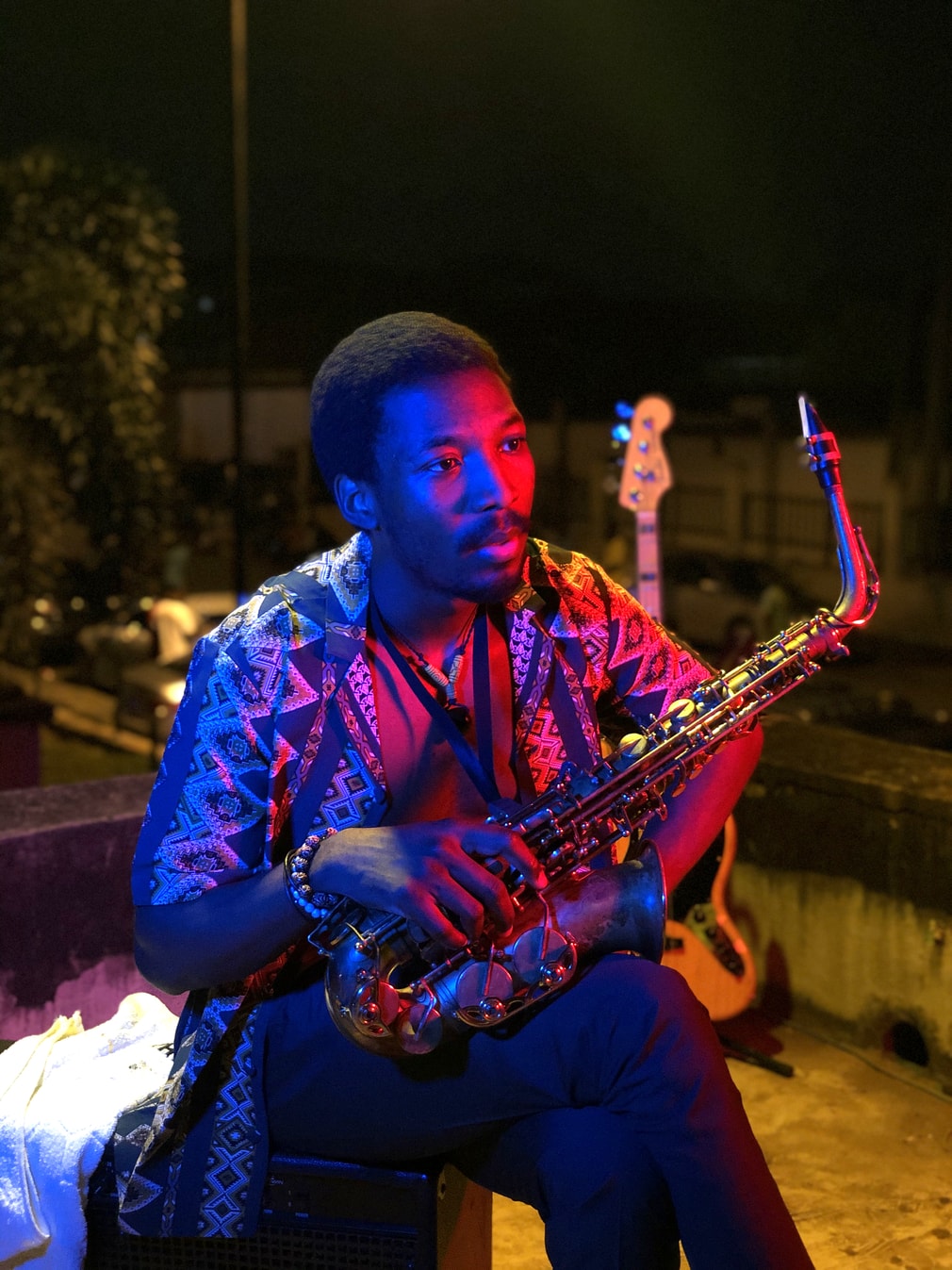
I’d like to ask a question about social media. Fela lived very publicly. Do you think he would have used social media? Would he have tweeted?
Femi Kuti: I think if it came in his thirties maybe, but not in later life. I remember in his thirties he used to buy a little column in the paper called `Daily Punch’ and everyday he would post a little political messages. So probably he would have used social media for that, but that’s all I would see him doing. But I don’t think he would have had the time to be tweeting because he still liked to have a good time in his life, he had his wives! (laughs).
Made Kuti: I feel like also if he did he would not have survived very long on twitter (laughing) He would have been censored very quickly.
Femi Kuti: He was too much of a man that liked to enjoy the moment. He never let that moment pass him by.
Last question, and it’s the same question for you both. You each have an album ready to go. Obviously the pandemic makes planning difficult, but I wondered what the plan was for release and tour?
Femi Kuti: It’s going to come out early next year. My single will soon be out, I think next month. Made will have another single out this year, and my second single will come out next year. And then hopefully the pandemic will be addressed by then and we can tour. So we are keeping our fingers crossed. But what is important is even before we come back from the pandemic people can know the music, and Made starts flying on his own. Made plays in my band too and will be on the tour, and then start recruiting his own band. The problem with music is you go by a year. So all the plans which are on hold are a year old and we have new ideas.
And so with a worsening internet connection and a rowdy party next door to the Kuti residence in full swing, thank yous were said and our time with the heirs of Afrobeat came to an end.
On February 5th, the label Partisan Records (which exploits Fela’s catalog) will release two albums, Femi Kuti’s Stop The Hate and Made Kuti’s For(e)ward, brought together in a boxed set with the evocative title: “Legacy +”.
